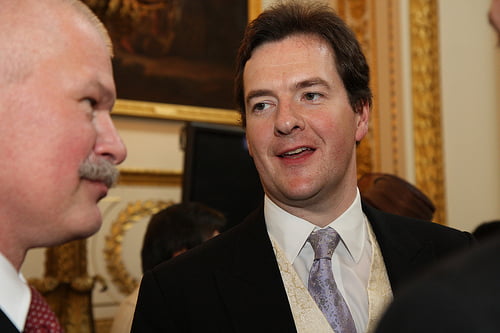

Economy
Budget 2013: green measures neglected as Osborne favours fracking
George Osborne offered tax breaks for shale gas developments, scrapped a rise in fuel duty and gave backing to more new roads, in a budget statement this afternoon that sent out little support to the sustainability sector.
The statement, Osborne’s fourth as chancellor of the exchequer, included only a handful of positives for the green economy and seemingly no backing at all for renewable energy.
The chancellor said that a shift to a low-carbon economy “should be done in a way that creates jobs rather than costing them” but picked out nuclear power and shale gas as his low-carbon energy sources of choice.
Of the latter, he added, “I am introducing a generous new tax regime, including a shale gas field allowance, to promote early investment.
“And by the summer, new planning guidance will be available alongside specific proposals to allow local communities to benefit.
“Shale gas is part of the future. And we will make it happen.”
Renewable energy technologies such as wind, solar, hydro and biomass were not mentioned in Osborne’s speech. Meanwhile, the recent news that Hinkley Point would be getting a new nuclear plant was described as “a major step forward” for the UK energy sector.
On transport, the chancellor said that the government would be continuing to invest heavily in railways, but went on to say that it would also be “spending more on new roads than in a generation”.
Plans to increase fuel duty by 3p were scrapped in the statement. In response, Friends of the Earth economics campaigner David Powell, said, “The driving force behind rising petrol prices is the soaring cost of oil – the sensible long-term plan is to protect motorists from rising fuel prices by weaning our transport system off its oil dependency.”
The news that Britain would be getting “the fastest broadband and mobile telephony in Europe” will be viewed as a minor plus point in an overall worrying budget for the green economy.
Responding to the chancellor’s statement, Labour leader Ed Miliband also failed in providing support on clean energy and environmental issues – instead resorting to a series of personal attacks, aimed primarily at the prime minister and the chancellor.
The accompanying 122-page budget document, available through the Treasury’s website, fails to mention climate change outside of the contexts of the Department of Energy and Climate Change and a climate change levy. Given the projected economic impact of a global increase in average temperatures, many will see this as a spectacular misjudgement from Osborne in a budget that failed to set the UK on a path of financial and environmental sustainability.
Speaking about an increase in borrowing, Osborne said, “That would pose a huge risk to the stability of the British economy, threaten a sharp rise in interest rates and leave the burden of debts to our children and grandchildren. I will not take that gamble with the future of this country.”
Green businesses and campaigners, along with the environment, the economy and society, will be lamenting the fact that he wasn’t talking about climate change, renewable energy or sustainability when he said this.
Further reading:
Budget 2013: renewables industry expects ‘measures to boost investment’
Budget 2013: green businesses call for sustainable ISA incentives
Budget 2013: Osborne is keeping the UK ‘hooked to fossil fuels’, campaigners say


 Environment12 months ago
Environment12 months agoAre Polymer Banknotes: an Eco-Friendly Trend or a Groundswell?

 Features11 months ago
Features11 months agoEco-Friendly Cryptocurrencies: Sustainable Investment Choices

 Features12 months ago
Features12 months agoEco-Friendly Crypto Traders Must Find the Right Exchange

 Energy11 months ago
Energy11 months agoThe Growing Role of Solar Panels in Ireland’s Energy Future





























